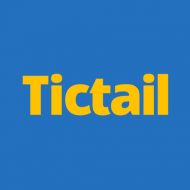 Tictail, the “Tumblr of e-commerce” has grabbed a solid €1.2 million seed capital in a round led by Balderton Capital and Klaus Hommel. Members of Tictail’s advisory board, including Spotify CPO Gustav Söderström and Tumblr COO Fredrik Nylander, have also made personal investments in the company.
Tictail, the “Tumblr of e-commerce” has grabbed a solid €1.2 million seed capital in a round led by Balderton Capital and Klaus Hommel. Members of Tictail’s advisory board, including Spotify CPO Gustav Söderström and Tumblr COO Fredrik Nylander, have also made personal investments in the company.
We covered the startup’s launch last May, and since then they have added 5000 independent stores to their e-commerce platform, with the most traction in Sweden, Germany, Denmark, France and the UK. Rather than going with a one-giant-store approach, like Etsy, Tictail allows you to create your own online store, rather than having your products show up right next to all of your competitors’ products.
With the announcement, Tictail has also added a to-do feed, which works a like an smart sales assistant. It helps you manage your orders, as well as help remind you to promote you new items on your social media channels if it sees you haven’t done so already. The to-do feed also provides SEO advice and CRM-support to keep track of loyal customers, which is hugely beneficial for people who are experts in their product’s niche, but not necessarily in the online marketing tricks needed to move product.
“I think it’s really cool to see the wide diversity of stores on the Tictail platform,” said Carl Waldekranz, the CEO of Tictail. “On one hand, we have stores like Fashion Squad, one of the largest fashion blogs in Sweden with over 200,000 fans on Facebook. She uses Tictail as a ‘shop my closet’ solution and we have hundreds of these blog stores. They are this specific niche, and they use Tictail in one way.
“And then we have the segment that we live and die for, and we call that segment ‘indy brands and boutiques’ and I guess the way you would describe the segment is small and medium size companies that are driven by entrepreneurs. They’re beyond hobby – it’s a fulltime profession – but they’re niche products. Their sales are [a combination of] their products and their brands. It’s not low margin distribution. And this would be the main area that we are growing.”
On top of that, Tictail has also seen huge brands, like Cheap Monday, leveraging the platform for popup shops.
Waldekranz also shared some more information about their business model, which we’ve been curious about because setting up a store and selling things is free. They do get some money coming in from the kickbacks from Paypal and Klarna, but their main focus is to open up Tictail towards an open API. There they will enable any third party developer to create premium features for the platform, for example discount codes, to Facebook campaigns, or integrations with ERP systems.
“The way we’ve been building Tictail from day one is like we are building it off of our own API. This will enable third party developers to get really deep into the integrations and create the Tictail that they want and they need.”
We’ve thrown up ArcticStartup T-Shirts and stickers into a Tictail store, and we’ve found it easy to get set up. We really haven’t played with it enough, but Tictail offers a nice selection of themes and lets you edit all the CSS/HTML you want.
More info on the Tictail feed can be found in this video:





